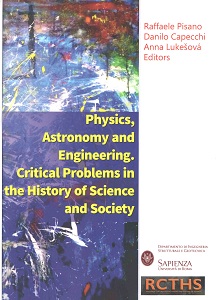THE CONCEPT OF WORK IN THE DEVELOPMENT OF APPLIED MECHANICS: CARNOT AND CORIOLIS
THE CONCEPT OF WORK IN THE DEVELOPMENT OF APPLIED MECHANICS: CARNOT AND CORIOLIS
Author(s): Agamenon Rodrigues Eufrásio Oliveira
Subject(s): History, History of ideas, 18th Century, 19th Century
Published by: Scientia Socialis, UAB
Keywords: History of work; History of applied mechanics; Carnot; Coriolis;
Summary/Abstract: In this paper, we are mainly concerned with the contributions of French engineers, mainly Lazare Carnot (1753–1823) general theory of machines, and Gaspard–Gustave de Coriolis (1792–1843) who wrote the first textbook on applied mechanics: Du calcul de l’effet des machines (1829). These two books have in common the use of the concept of work as a fundamental step to build a general theory of applied mechanics within the framework of Rational Mechanics. Carnot started to develop his theory of machines applying d’Alembert (1717–1783) principle. Coriolis, in his book, develops Lazare Carnot’s project and uses extensively the concept of work associated to the new mathematical formalism.
- Page Range: 123-130
- Page Count: 8
- Publication Year: 2013
- Language: English
- Content File-PDF

